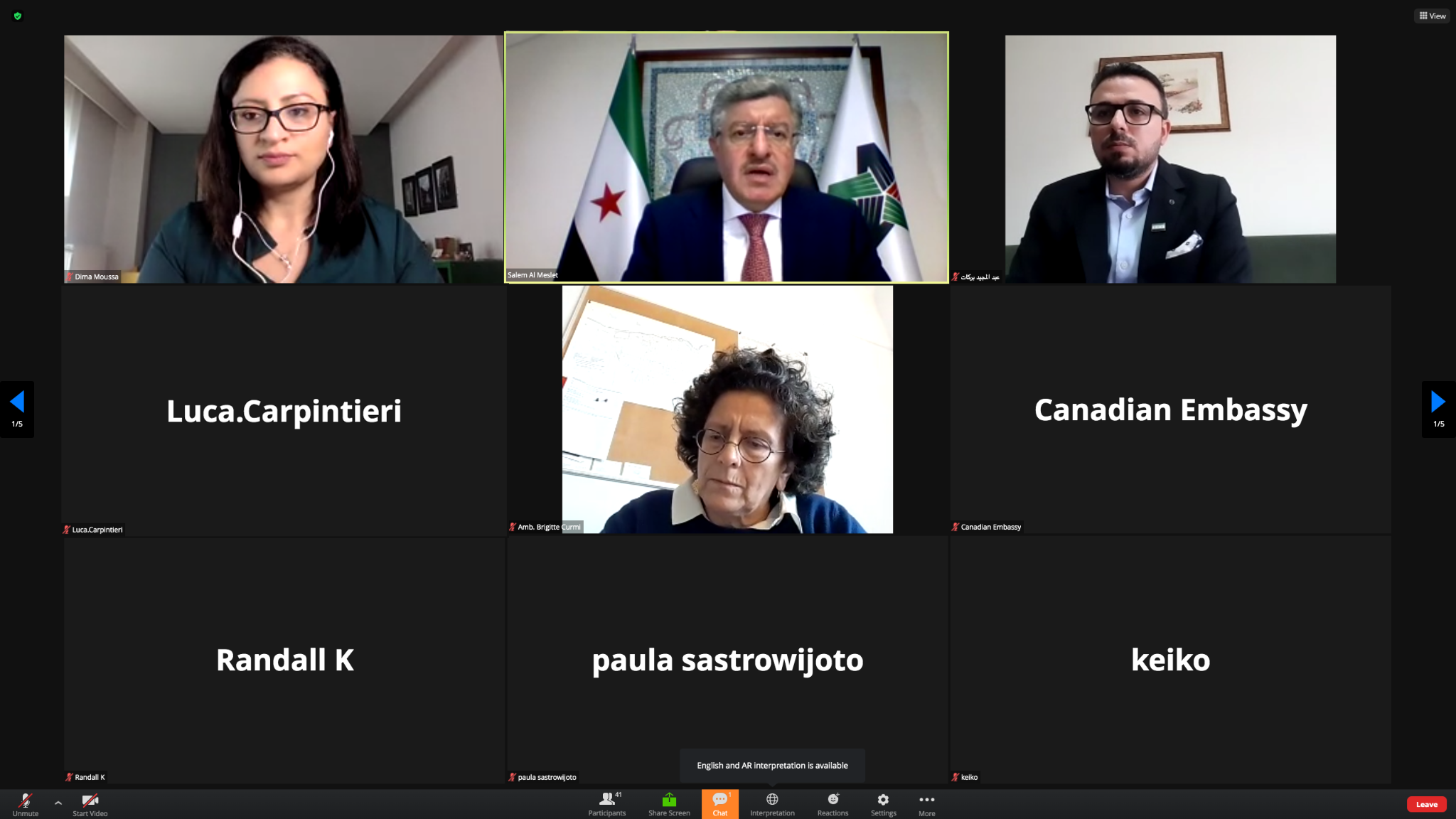The Syrian Opposition Coalition (SOC) held a virtual meeting with the envoys of 18 countries sympathetic to the Syrian people. The meeting covered the latest developments in the field and the political process in Syria, as well as the issue of humanitarian aid.
The meeting was attended by SOC President Salem al-Meslet, Vice-President Abdul Ahad Astifo, and members of the political body. Also attending were Syrian Interim Government Health Minister Maram al-Sheikh, Support Coordination Unit Executive Director Mohammed Hassano, and Information Unit Head Qassim Shobak.
Meslet stressed to the envoys the commitment of the Syrian opposition to a political solution. He called on sympathetic countries to pressure Russia on this issue, to drive forward the difficult political process, as opposed to attempts to normalize relations with the regime and reward it for its crimes.
Read Also: Why the EU Consensus on Syria Could be Slowly Unravelling
He called on all countries to support a “humanitarian detente” in terms of health and education, particularly given the harsh conditions experienced by many displaced persons in the current winter months, as well as the accompanying spread of the COVID-19 pandemic. Meslet stressed the importance of supporting the interim Syrian government, which is facing great difficulties in meeting the population’s needs, on these two issues.
Yasser al-Farhan, head of the National Authority for Detainees and Missing Persons Affairs, stressed the need to build an integrated strategy to prosecute criminals and perpetrators of violations against civilians, and refer these files to the International Criminal Court.
Dima Moussa, a member of the SOC’s foreign relations department, spoke about the tragic situation in northwestern and eastern Syria. She said: “We have a deadline of six months to extend UN Security Council Resolution 2585, which provides for cross-border humanitarian aid. It appears that ambiguity in reporting requirements is being politicized in order to extend the resolution, which in the end, is a humanitarian decision.
Health Minister Maram al-Sheikh explained the health situation in the liberated areas and the needs required to manage the COVID-19 pandemic, as well as the spread of leishmaniasis and the help required to contain both viruses.
Qassem Shobak, head of the information unit at the Support Coordination Unit, also reviewed the health, education, and winter need.,He called for putting pressure on donors to provide humanitarian services and prevent any disasters, calling for more donor coordination and developing a long-term UN response.
This article was translated and edited by The Syrian Observer. The Syrian Observer has not verified the content of this story. Responsibility for the information and views set out in this article lies entirely with the author.


